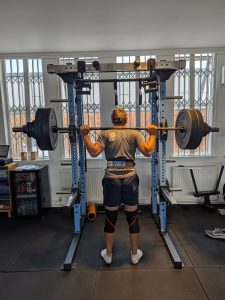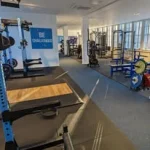Why Strength Training Is Essential for Runners
Strength training isn’t just for gym-goers — it’s a game-changer for runners of all levels. At Real World Fitness in Colwick, Nottingham, we regularly see people who think lifting weights and running don’t mix. The truth is, strength training makes you a stronger, faster, and more resilient runner.
Running alone can leave weak spots in your body. That’s where targeted strength training fills the gaps — building efficiency, preventing injuries, and giving you the power to cover more miles with less effort.
How Strength Training Improves Running Performance
-
Better efficiency and endurance: Stronger legs mean every stride feels lighter and smoother. Quads, hamstrings, glutes, and calves all work together more effectively.
-
Reduced injury risk: Squats, deadlifts, and single-leg exercises build stability, protecting knees, hips, and ankles from the pounding of long-distance runs.
-
Smarter strength, not bulk: At Real World Fitness, we focus on functional strength. You’ll gain power and stability without the unnecessary muscle mass that slows you down.
-
Stronger core, stronger stride: A solid core means better posture and running form — which translates to fewer aches and more consistent pacing.
Strength Training and Running: Striking the Right Balance
If you’re a casual runner doing the odd 5k, you can combine lifting and running easily. But as your weekly mileage climbs, you need to balance recovery and workload carefully. That’s where structured gym programming comes in.
Sample Runner’s Strength Plan
| Day | Session |
|---|---|
| Monday | 5 km run |
| Tuesday | Squats 5×5, Romanian deadlifts 3×8, split squats 3×12 |
| Wednesday | Rest |
| Thursday | Leg press 3×10, box step-ups 3×10, calf raises 3×15 |
| Friday | Rest |
| Saturday | 5–8 km run |
| Sunday | Rest |
-
Keep strength sessions 30–40 minutes max.
-
Focus on compound lifts and quality movement over high volume.
-
Always learn the right technique first — poor form helps nobody, least of all your knees.
Try it for a few weeks – making sure you get instruction on any exercise you don’t know. There’s no point starting strength training for running to improve your running and then getting yourself hurt on day one in the gym!

PT Client Chris has used our strength training to help his distance running
Why Runners in Nottingham Choose Real World Fitness
At Real World Fitness, we’ve helped hundreds of runners in Nottingham — from casual 5k joggers to marathon finishers — use strength training to improve their performance.
-
Capped membership gym – never overcrowded, so you’ll never fight for space or equipment.
-
Expert coaching – our personal trainers understand the demands of both lifting and running.
-
24-hour access & free parking – making it easy to fit strength sessions around your running schedule.
Whether you’re training for your first Park Run or chasing a marathon PB, we’ll help you use strength training to run faster, longer, and pain-free.
Ready to Improve Your Running with Strength Training?
If you need some expert guidance in Nottingham, get in touch. We’d love to help (and a couple of us are even the kind of casual runners we’re talking about!)
FAQs: Strength Training for Runners
How does strength training make me a faster runner?
It improves stride efficiency and power. Stronger glutes, hamstrings and calves waste less energy each step — so you hold pace longer and finish stronger.
Will lifting make me bulky and slow?
No. We programme low-to-moderate volume, appropriate loads, and focus on neural strength. You’ll gain stability and power without unnecessary mass.
How many strength sessions should runners do per week?
Most runners do best with 2 short sessions (30–40 minutes), ideally on easy-run days or after a run, not before hard workouts.
What are the best strength exercises for runners?
Squats, deadlifts/RDLs, split squats, step-ups, calf raises, and core work (anti-rotation, carries). Single-leg work is key for hip/knee stability.
Should I lift before or after a run?
If it’s the same day, run first, lift after — especially on quality run days. Keep the day after heavy lower-body lifting easier or rest.
Can strength training reduce knee, hip, or Achilles niggles?
Often, yes. Progressive loading for the calves, quads, and glutes plus single-leg work improves tendon capacity and joint control. We’ll tailor this to your history.
How does this change during half- or marathon prep?
Keep two sessions but reduce volume in peak weeks. In the final 10–14 days, taper strength: maintain intensity, cut sets, avoid new exercises.
Do beginners need a gym, or can this be done at home?
Dumbbells and a band will get you started, but Nottingham runners get more from coaching and proper loading at our gym — plus you won’t wait for kit.
How quickly will I notice benefits?
Most feel smoother form within 4–6 weeks and see measurable pace/HR improvements by 8–12 weeks, assuming consistent running.
Can you build me a plan around parkrun and my busy week?
Yes. We’ll slot two efficient sessions around your parkrun and long run, with recovery baked in so you’re fresh when it matters.
Book a free Personal Training session today
If you’re in Colwick, Netherfield, West Bridgford, or anywhere else in Nottingham and you’re considering personal training, now’s your chance!
Book your FREE personal training session today and turn your fitness dreams and transformation goals into an achievable reality.
Don’t just take our word for it; feel the difference in guidance, expertise, and motivation. Nottingham residents, your journey to the best version of yourself starts with just one session.




